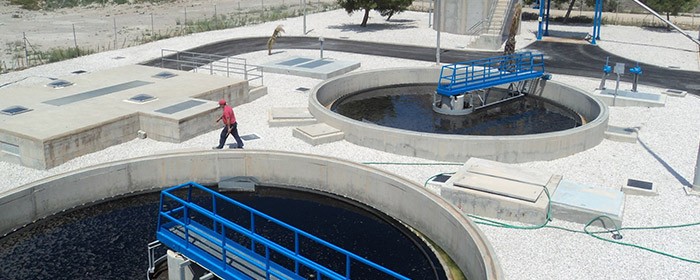- The RAMSES project will apply anaerobic bacteria before the biological treatment phase to increase the capacity of the plant by 25%, reduce energy consumption and diminish the volume of sludge by 30%
- The project is part of the LIFE+ European Program and includes a pilot installation in the wastewater treatment plant at Blanca (Murcia, Spain)

ACCIONA Agua and ESAMUR (an entity of the Regional Ministry of Water, Agriculture and the Environment of Murcia) are developing the RAMSES project (Reclaimed Water Quality Through Mainstream Anaerobic Treatment Using Supported Biomass Growth) that will improve the quality of the treated water and facilitate its re-use for agricultural use, as well as reducing the energy consumption of the plants and increasing the water flow treated by 25%. This project has been selected by the European Union to be part of the LIFE+ program, a financial instrument to promote research projects with the strongest potential for the protection of the environment and the fight against climate change.
The RAMSES project is based on the design and implementation of a water treatment system using anaerobic bacteria that grow on a mobile support that will be incorporated into the plant before the usual biological treatment phase. More than 75% of the organic material and solids in suspension in the wastewater will be removed before the biological treatment phase, the most expensive one in the process because it requires a high input of energy. This means that the elimination of almost 30% of the volume of sludge produced in the biological treatment phase is also achieved.
Another characteristic of this treatment system is that it allows the collection of biogas, which can be used to provide part of the consumption needs of the new process in self-supply mode.
The new process will give the treatment plants where it is installed the capacity to treat up to 25% more water, so new plants can reduce their size by one quarter.
The project, with a budget of 1.1 million euros, will be implemented as a pilot in the wastewater treatment plant at Blanca (Murcia). It will be possible to extrapolate it to ACCIONA Agua’s other plants because one of the lines of research in the project is about the viability of applying this system under any climate conditions.
The initiative joins other R&D+i projects developed by ACCIONA Agua (OFREA, Renewat, BRAINYMEM, OptiAnMBR….) that also aim at a reduction in energy dependence in water treatment plants, lower levels of residual sludge (and its re-use) and an improvement in the quality of the water treated.
This computer graphic shows the phases of the usual process of water treatment